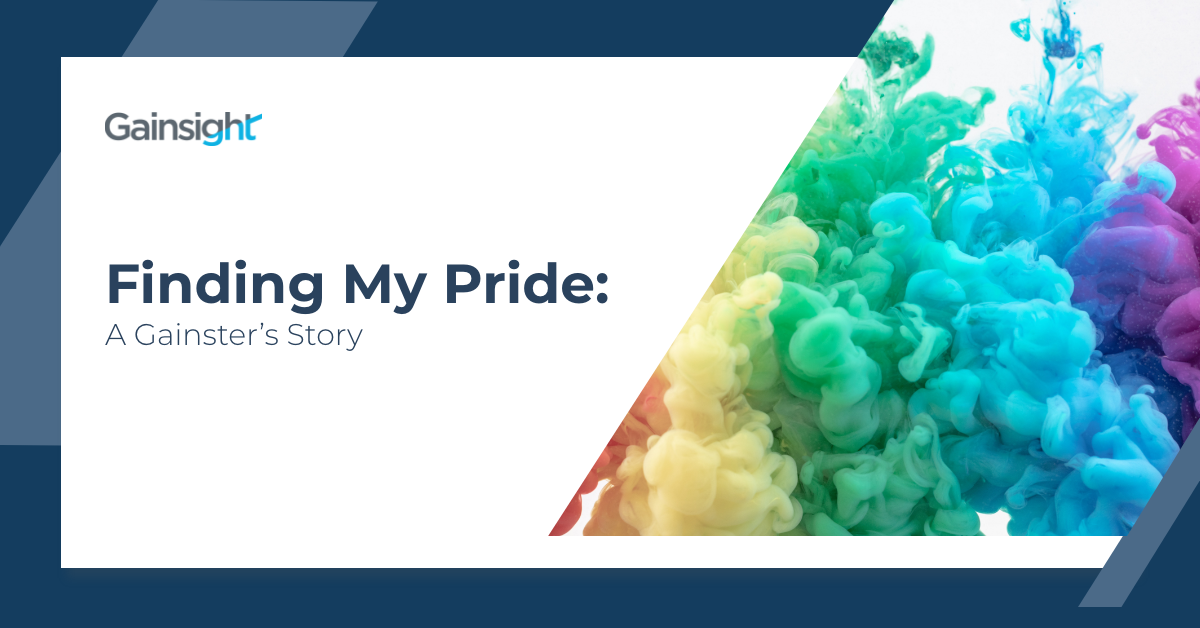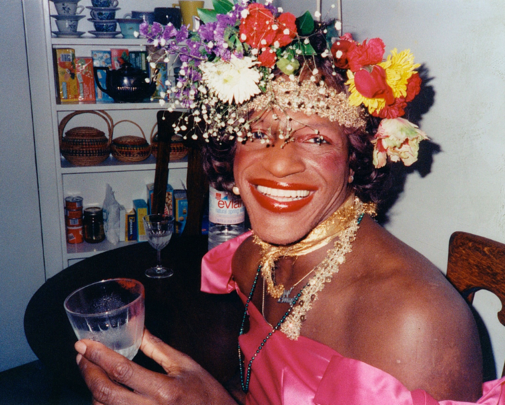I originally came out as “not straight” in early high school, but the time I spent in heterosexual romantic relationships seemed to nullify my Queer identity to my peers. A resulting feeling that I wasn’t “Queer enough” to warrant coming out kept me from being more public about my sexuality in the years since then, especially at work. I’ve come to realize that nagging feeling is internalized homophobia, and the only way it could be conquered was by accepting my Queerness as a part of my whole self in all parts of my life and using my own visibility to bring greater awareness, acceptance, and accessibility to all parts of the beautiful LGBTQIA+ spectrum, to Gainsight from within. I am especially passionate about ensuring Gainsight is a welcoming place for Trans and Nonbinary employees, and it’s been wonderful to see the acceptance and the willingness to learn from the people I work with!
Have you watched Pose yet? Why not? It’s so good. It’s about my family.
Pose is the story of chosen families of Queer folks who lived and thrived during the AIDS epidemic in the 80s and 90s by creating art, community and opportunity for themselves through New York City’s ballroom scene. It tells the story of Queer folks who wouldn’t or couldn’t snap to the rigid grid of the expectations of gender and sexuality supposedly promised with blue or pink balloons at birth. Queer folks with sharp nails and sharp elbows who created a space for themselves in a time when they were told there was no space for them; ostracized from families, from traditional employment, from renting a property, from the acknowledgment that they were dying from an illness downplayed by the media and Washington.
Before I get too far, what do I mean when I say Queer? It’s another example of a slur (one I wish I could preface with “former,” but we know that’s not true), reclaimed by the community in the late 80s (especially by Queer folks of color) as a way of bucking the idea that the ultimate goal of gay liberation was assimilation.
Queer is now used in a few different ways within the community as a whole:
- As an umbrella term for anyone who is not heterosexual and/or does not fit neatly into the gender they were assigned at birth.
- As a sexual identity, like Lesbian or Gay (it’s what the Q in LGBTQIA+ stands for).
- As a shorthand label to describe the LGBTQIA+ community and its byproducts (Queer Studies, Queer Theory, Queer Cinema, Queer Art).
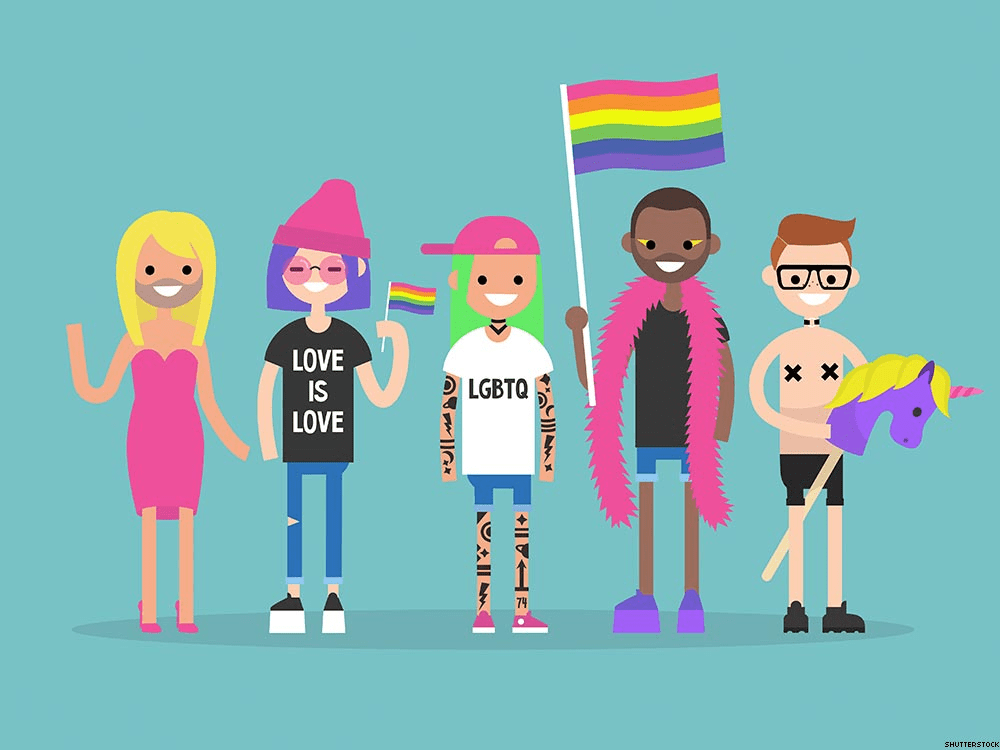 Queer is so wonderful because it defies categorization.
Queer is so wonderful because it defies categorization.
I first chose the personal label of Queer after realizing that the process of trying to quantify my own preferences to the extent that I could comfortably fit into the labels that existed at the time (Gay, Bisexual.. definitely not straight, though) felt like a fool’s errand. I’ve kept it and embraced it as a way of honoring the people who fought for its use, especially those who don’t have the same privileges I am afforded as a white person. My identity is a call to me to create a safer world for every single person under that umbrella, even the ones who make you uncomfortable. Especially the ones who make you uncomfortable; every single person who gleefully refuses to fit neatly into any category, anyone who had to choose sex work or shoplifting because up until recently it was still legal to fire someone just for being Queer, anyone forced into houselessness, each and everyone a child of God. My family.
There are no ways I can think about Pride right now without thinking about the ways in which I feel like a child of brave generations of men and women and otherwise who fought so hard, who often gave their lives, in service of this community of misfits. A family that stretches for generations, with a shared belief that there can be a place for all of us, no matter who we love, which pronouns we use, or what we wear. A family made up of every shade along the spectrum of human skin, with a shared understanding that we are called to care for each other and create a better world.
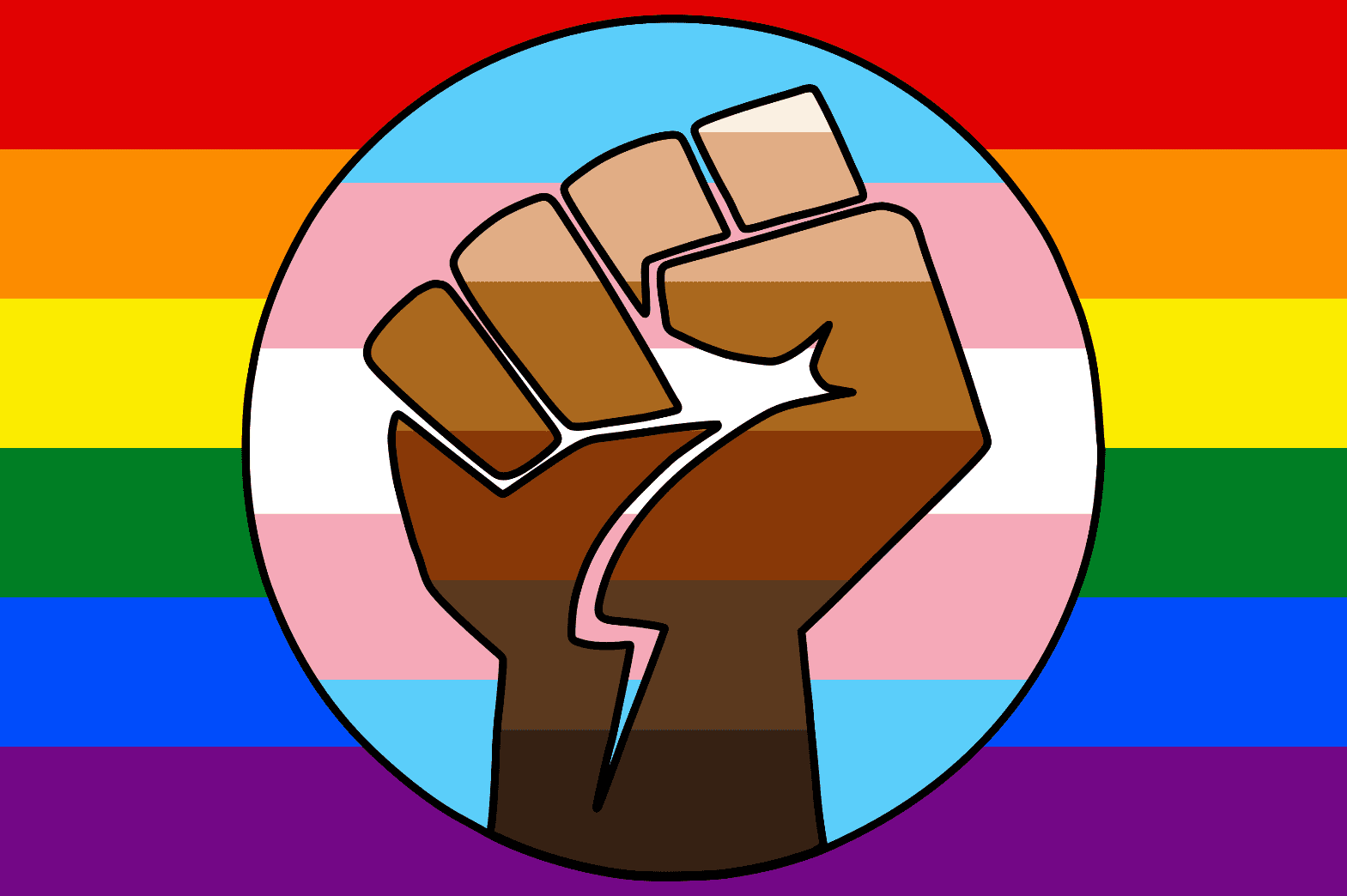
A version of the Pride flag that pays homage to our Black and Brown foremothers, by unfitmisfit
The theme of family comes up a lot in Pose. The show begins with the defection of Blanca, a Trans Afro-Dominican woman, from her current house/family (a group of Queer folks who compete together in NYC’s Ballroom scene) to create her own, The House of Evangelista. She feels called to truly be a mother to the group of young people she accepts under her care, who have faced rejection at every turn, including Angel, a Trans woman she helps leave sex work for modeling, and Damon, a classical dancer kicked out for being gay, who she helps pursue an education at a prestigious dance academy. As the show goes on we see the bonds of the family deepen, as we also see the way in which these smaller house families feel the connection to the larger family of their community on the fringes of society.
George Floyd called out for his mother in his final breaths, and that call has been answered by mothers all over the world, united by their identities as sustainers of life, caregivers, mothers. In honor of the mothers of the movement, the mothers of Queer liberation, like Marsha P. Johnson and Sylvia Rivera, we feel compelled to answer that same call. Our family has felt this kind of pain. We know it intimately. We know the stories that went untold, the tragedy and devastation of public inaction at the hands of both systemic oppression and an uncontrolled illness, the violence of police brutality.
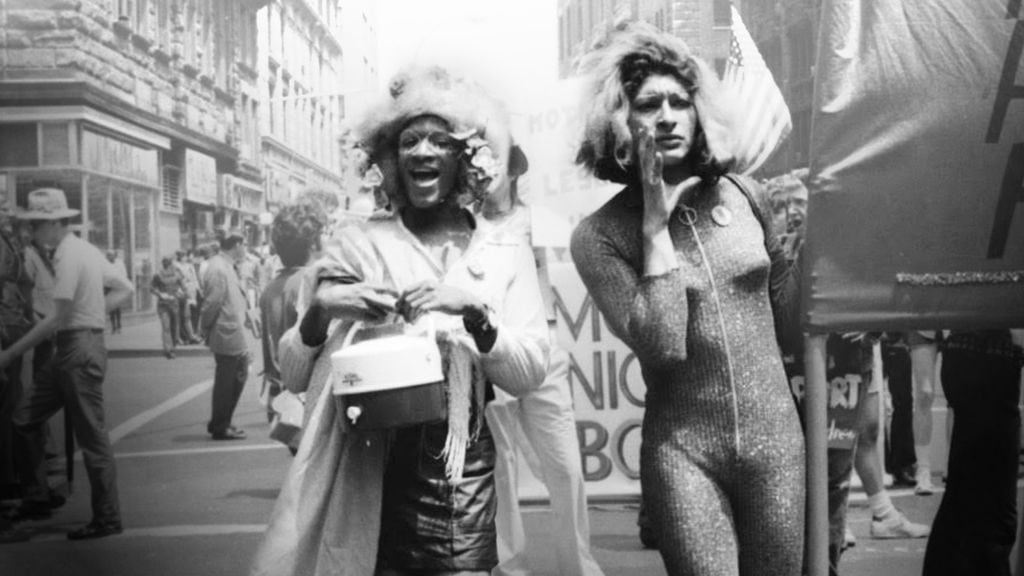 Marsha P. Johnson and Sylvia Rivera, Gay Pride Parade, New York City, 1973
Marsha P. Johnson and Sylvia Rivera, Gay Pride Parade, New York City, 1973
The pride parades were canceled, but it doesn’t matter because Pride has been taken back to its roots, back to where it started. Because we’re a family, all of us, and we feel called to show up for all intersections of the most vulnerable among us because those intersections are intertwined and inseparable. As a Queer woman, I feel called upon to honor and bring justice for Black lives, because as Martin Luther King Jr. said in his letter from a Birmingham jail, “Injustice anywhere is a threat to justice everywhere. We are caught in an inescapable network of mutuality, tied in a single garment of destiny. Whatever affects one directly, affects all indirectly.” As Queer folks, we know this intimately.
Black lives matter. Black Trans lives matter. Black Queer lives, Black disabled lives, Black at-risk-forced-to-work-no-choice-but-to-get-sick lives. Black in-the-VA-hospital, Black in-a-nursing-home, Black sleeping-off-a-long-shift lives. Black lives matter. To carry on the legacy of Marsha P. Johnson and Sylvia Rivera, please consider a donation to the Homeless Black Trans Woman Fund, which provides direct support to the community of Black Trans women living on the streets of Atlanta.
